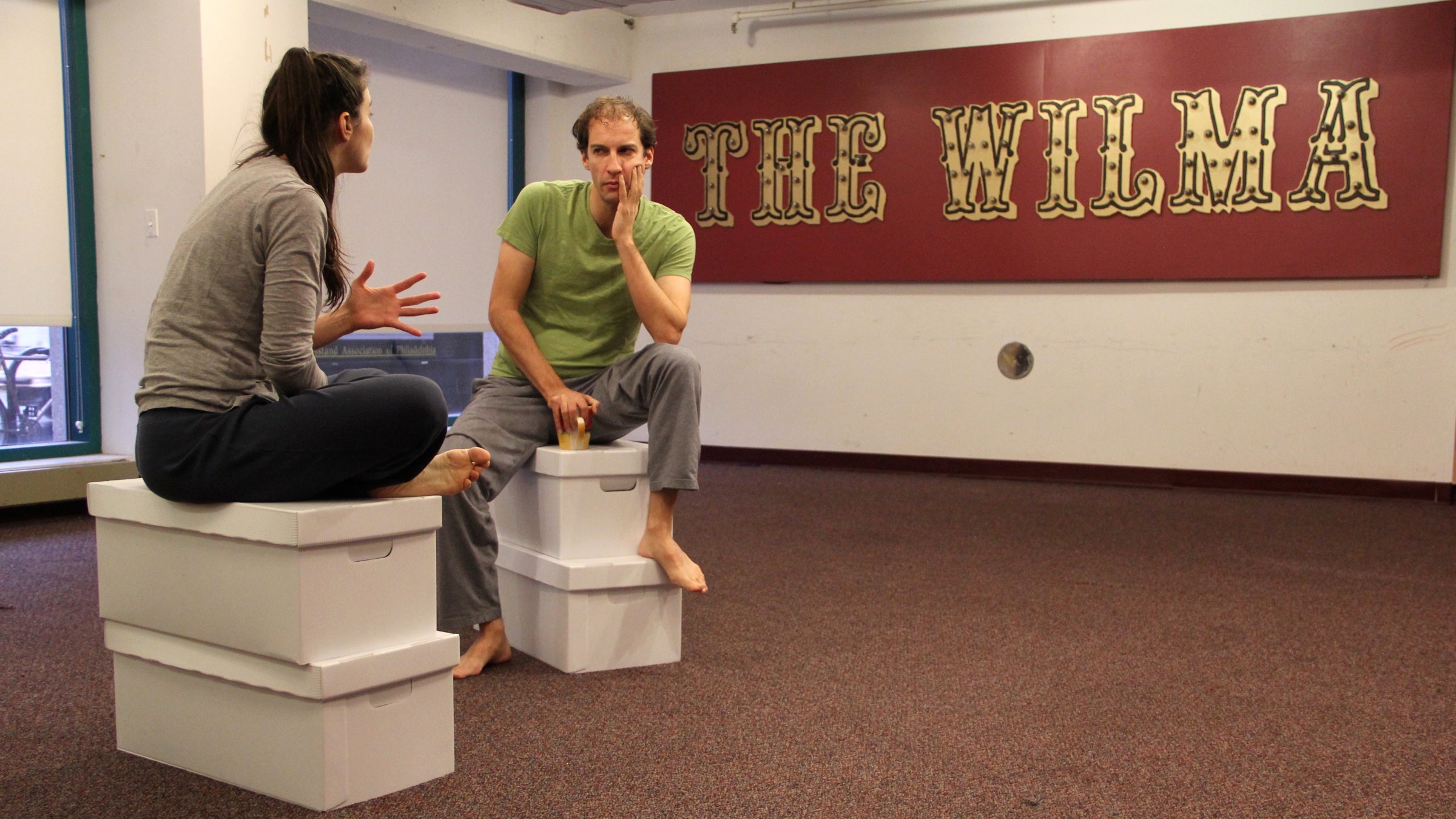Wilma Theater grapples with ‘Hard Problem’ in dramatic fashion

Sarah Gliko and Ross Beschler rehearse their roles as Hilary and Spike in a Wilma Theater production of Tom Stoppard's "The Hard Problem," an examination of the nature of consciousness. (Emma Lee/WHYY)
The Wilma Theater in Philadelphia is staging the American premiere of “The Hard Problem,” a new play by Tom Stoppard that had its world premiere last year in London. The title refers to a certain, sticky philosophical conundrum.
The easy problem, for scientists, is understanding brain behavior — how the brain reacts to certain stimuli. The hard problem is understanding why the brain is conscious. In other words, how the brain produces subjective feelings and thoughts.
In “The Hard Problem,” a young woman named Hilary is applying for a position at an academic institute to study the brain. Her adviser — and sometimes lover — Spike urges her to think in terms of strict evolutionary biology or survival of the fittest.
“Competition is the natural order. Self-interest is bedrock,” says Spike during an exchange of equal parts argument and seduction. Evolutionary biology cannot account for selfless acts. “Altruism is an outlier, unless you are an ant or a bee. You are not an ant or a bee.”
“Giving something to get something isn’t altruism, anyway,” Hilary retorts.
“That’s what I’m saying.”
“No, you’re not,” Hilary continues. “You’re saying there’s no such thing, and I’m saying there is.”
It’s an idea Stoppard struggles with because, one the one hand, Darwinism makes sense. On the other hand is morality.
“Human life is pointless without a sense of value in things which can’t be quantified,” said Stoppard. “I’m not talking about value in a sense of lots of money or lots of food. I’m talking about things having a sublime or metaphysical value that seems to be central to any kind of society — actually central to any human individual.”
For Stoppard, morality must be rooted in consciousness, such that people have internal sets of values based on a subjective sense of self. But for that to be true, he has to understand the nature of consciousness. Thus, the hard problem.
For centuries the hard problem has been a staple of philosophy. In the last few decades, psychologists, neurobiologists, and physicists have applied their scientific tools to come up with an answer. So far, nobody has found it.
“It’s a hard problem because nobody understand the fact, the phenomenon of consciousness,” said Stoppard. “You and I have this first-person subjective movie going on in our heads and we assume other people also have such a thing going on in their heads. But it’s very difficult to get at it and account for it.”
David Chalmers, a philosopher at the New York University, coined the phrase “the hard problem.” He said Stoppard’s play genuinely grapples with some of the philosophical conundrums he thinks about, but in a very different way.
Stoppard’s “Hard Problem” is, after all, a play meant to entertain, not explain the human mind.
The Wilma’s production continues through Feb. 6.
WHYY is your source for fact-based, in-depth journalism and information. As a nonprofit organization, we rely on financial support from readers like you. Please give today.





